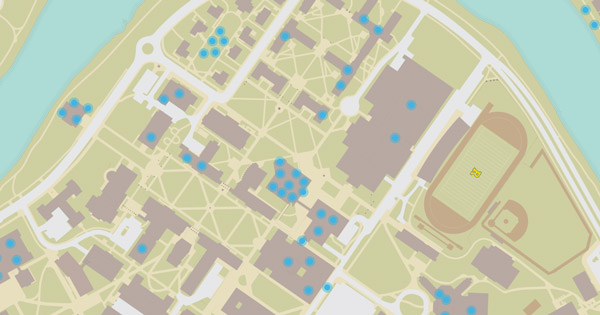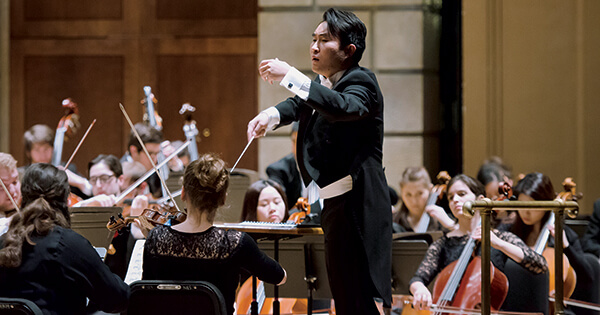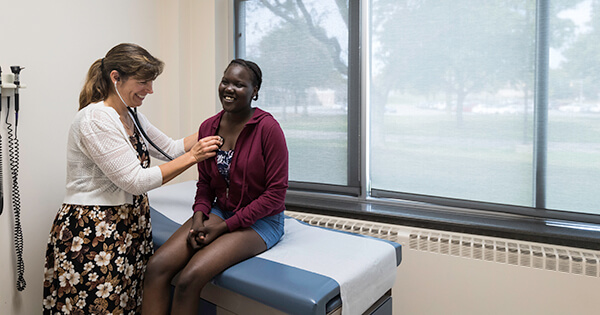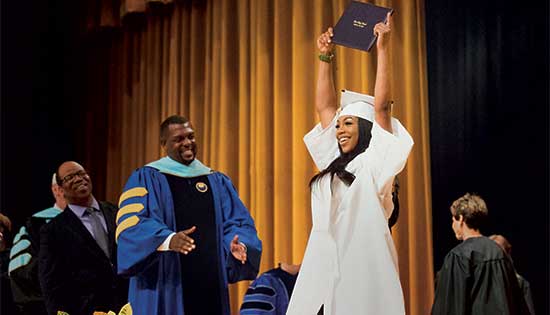COVID treatments and vaccines for ever better outcomes.
Addressing the effects of poverty, trauma, and other challenges facing families in our community.
When the COVID-19 pandemic hit, Rochester researchers helped lead a national response, developing and testing life-saving treatments and vaccines, and educating our community.
In spring 2020, Angela Branche and Ann Falsey, codirectors of the University of Rochester Medical Center’s Vaccine and Treatment Evaluation Unit (VTEU), began leading an NIH–sponsored clinical trial to evaluate the safety and efficacy of the antiviral drug remdesivir in adults hospitalized with COVID-19.
The drug received emergency use authorization in May 2020, and since then, research has turned to improving the drug’s effectiveness by studying it in combination with other drugs.
Under the umbrella of the VTEU, Branche and Falsey also directed several vaccine trials in Rochester as part of Operation Warp Speed, a multiagency collaboration led by the US Department of Health and Human Services to safely accelerate the development, manufacturing, and distribution of COVID-19 vaccines and therapies. The vaccine efforts at Rochester included phase 3 trials, the final stage of development of a vaccine before FDA approval.
In addition to their research on COVID-19 vaccines and treatments, Falsey and Branche have launched substantial efforts to overcome one of the most difficult problems in clinical trials: participation is usually overwhelmingly white suburbanites.
The problem is especially urgent given that COVID-19 disproportionately affects people of color in low-income communities, and the researchers have addressed it through extensive outreach to community organizations, advocacy groups, faith leaders, and even high school students.
The two have also been involved in community efforts to distribute COVID-19 “survival kits” to homes in low-income Rochester neighborhoods.
“How can we impact our community in a positive way?” Branche asks. “I think at this specific time, it means really educating people about COVID-19—about what people need to do to protect themselves, about the disease itself, and about why vaccines are important and why we think they’re safe.”
Ultimately, they hope every community has at least a 70 to 80 percent vaccine rate.
But this is just one small part of their larger mission: in Branche’s words, to “develop these vaccines to deploy them across the United States and to effectively vaccinate the US population so that we can really control and put a halt to the spread of COVID-19.”





